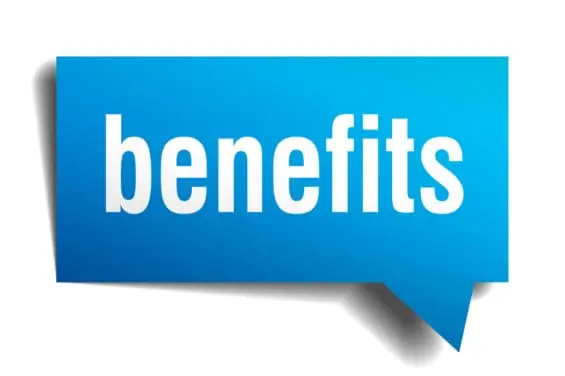Losing a loved one is never an easy situation. If you were named in their will and about to receive some inheritance, you might wonder about the tax impacts.
The truth is there is no such thing as an inheritance tax in Canada. The tricky thing is that this does not mean the assets you receive will not be taxed. Some costs and taxes must be paid, but not by you, the inheritor.
This article debunks the misconceptions about inheritance tax in Canada and explains what you need to know about estate taxes and probate.
What is an Inheritance Tax?
Most people think any inheritance you receive from a loved one’s passing will be taxable. This is not true. Canada has no official inheritance tax, meaning you will not pay taxes on the money you inherit.
What many confuse as being an inheritance tax is just the deceased being taxed normally by the CRA. This is why the amount you eventually receive may be less than what you thought it would be from the will.
Do You Pay Inheritance Tax in Canada?
As the inheritor, you will not pay any tax on your inheritance in Canada. The taxes in question are paid by the deceased. The CRA will collect any unpaid taxes from the year that your loved one passed away.
This might feel like your inheritance is being taxed, but it is your loved one’s estate that is being taxed before inheritances are distributed. When it comes to your own personal taxes, you won’t have to pay a dime.
What is Inheritance Tax in Canada on Property?
For most Canadians, this will never be an issue. If parents pass away and leave their children with the primary property, the CRA will treat this as what is called a deemed disposition. This essentially means that the deceased disposed of the house before their passing.
The market value of any property that is inherited is tax-free in Canada. If you plan on residing in the property, you will not have to pay any taxes when you inherit it. But if you plan on renting the property and turning it into an investment, you will need to pay capital gains taxes even if it was your parents’ primary residence.
There is an exception to this rule: if your parents leave secondary or multiple properties, you will need to pay capital gains taxes on them. This also applies to commercial properties that you inherit.
How would this be calculated? If your parents bought the secondary residence for $200,000 and it is now worth $500,000, the capital gain is $300,000. You would owe capital gains taxes on that $300,000, which will be deducted from the estate.
How Does Estate Tax Work in Canada?
There is no official estate tax in Canada. What most people refer to as estate taxes are the taxes that are paid in the distribution or transfer of inheritances.
Are you receiving an inheritance? Here is the breakdown of taxes for different types of estate assets in Canada.
Registered Accounts
When it comes to inheriting a loved one’s registered accounts in Canada, the same rules generally apply. With an RRSP or RRIF, it is a deemed withdrawal, which means the CRA treats it as a full withdrawal of funds before death. Taxes will need to be paid on the full amount of capital unless it is specified that there is a beneficiary. In this case, the RRSP capital can be passed on and be tax-deferred if the beneficiary keeps it in their RRSP.
With a TFSA, the capital is not taxed at death. However, the TFSA is closed, and any capital appreciation between the time of death and the time of inheritance is taxed. For example, if a TFSA is worth $30,000 at death and $32,000 when received, the $2,000 capital gains will be taxable by the inheritor.
Non-Registered Accounts
If your loved one held stocks, ETFs, or any other assets in a non-registered account, it will also be treated as a deemed withdrawal. Since non-registered accounts are not tax-sheltered, the inheritor will pay taxes on all of the capital gains from those assets. Usually, this is deducted from the estate before the inheritance ever reaches the beneficiary.
Real Estate
As we mentioned, there are no taxes paid if you inherit a primary residence and intend to live there. If you plan to rent it out or sell it, then you will need to pay capital gains taxes. If you inherit a secondary residence like a cottage or vacation home, then you will need to pay capital gains taxes on this property.
Capital Gains
Capital gains can come from various investments in Canada. It is simply the value of the asset now compared to when you first bought it. Generally, 50% of capital gains in Canada are considered taxable and will be added to the estate’s income before any inheritance is distributed.
Final Income Tax Return
Although it might be the last thing on your mind, the deceased must file one final tax return for the year of death.
This will include any deemed dispositions or withdrawals, charitable donations, rollovers, death benefits, and applicable capital gains on investments. Here are the deadlines for when the final income tax return must be filed:
| When a Loved One Passed | Due Date for Final Income Tax Return |
| January 1st to October 31st | April 30 of the next calendar year |
| November 1st to December 31st | Six months following the passing |
What is Probate?
Probate is a legal process that validates a deceased person’s will by a court of law. This process in Canada differs by province or territory.
Not only does the probate process determine if a will is valid, but it also allows the will’s executor to distribute the estate via inheritance. Almost all assets will go through probate to determine the rightful beneficiary as stated in the will. This includes bank accounts, property, vehicles, and investments.
While the process of probate is usually smooth, this is also a time when family members can dispute the will. The court will not issue a grant of probate until all disputes have been settled. This means it can take anywhere from a few weeks to several years to complete.
As can be expected, some fees come with probate. Fees vary by province and are usually determined by the value of the estate.
| Province/Territory | Probate Tax Rate |
| Alberta | -$35 for an estate of $10,000 or less -$135 for estate between $10,000 and $25,000 -$275 for estate between $25,000 and $125,000 -$400 for estate between $125,000 and $250,000 -$525 for an estate over $250,000 |
| British Columbia | -No fees for $25,000 or less -1.6% of estate between $25,000 and $50,000 -1.4% for amounts above $50,000 |
| Manitoba | -No Fees |
| New Brunswick | -$25 for an estate of $5,000 or less -$50 for estate between $5,000 and $10,000 -$75 for estate between $10,000 and $15,000 -$100 for estate between $15,000 and $20,0000 -5% for estates over $20,000 |
| Newfoundland and Labrador | -$60 for an estate of $1,000 or less -0.6% on estate over $1,000 |
| Nova Scotia | -$85.60 for an estate of $10,000 or less -$215.20 for estate between $10,000 and $25,000 -$358.15 for estate between $25,000 and $50,000 -$1,002.65 for estates between $50,000 and $100,000 -$1,002.65 for the next $100,000 -1.695% for estates over $200,000 |
| Ontario | -First $50,000 exempt from probate tax -1.5% of the estate’s value over $50,000 |
| Prince Edward Island | -$50 for an estate of $10,000 or less -$100 for estate between $10,000 and $25,000 -$200 for estate between $25,000 and $50,000 -$400 for estate between $50,000 and $100,000 -$400 for the next $100,0000. -4% for estates over $200,000 |
| Quebec | -$65 fee |
| Saskatchewan | -0.7% of the estate’s value |
| Northwest Territories | -$30 for an estate of $10,000 or less -$110 for estate between $10,000 and $25,000 -$215 for estate between $25,000 and $125,000 -$325 for estate between $125,000 and $250,000 -$435 for estates over $250,000 |
| Nunavut | -$25 for an estate of $10,000 or less -$100 for estate between $10,000 and $25,000 -$200 for estate between $25,000 and $125,000 -$300 for estate between $125,000 and $250,000 -$400 for an estate over $250,000 |
| Yukon | -$140 for an estate over $25,000 |
In Canada, there are three ways to avoid paying probate fees: joint ownership of assets with a spouse, using a trust to distribute inheritances, and distributing cash gifts to your dependents before you die.
Related: Free Will Kits and Templates in Canada.
FAQs
The easiest way to avoid capital gains tax on inherited property in Canada is to live in it as your primary residence. When you sell the property or use it as a rental investment, you must pay capital gains on it.
Yes, inheritance can be more complicated for non-residents of Canada. Generally, for things like investments, there are withholding taxes of 25% involved. This tax rate will also depend on the country of the beneficiary, as some nations have a lower tax treaty with Canada.
Canada officially abolished the inheritance tax in 1972. There are still fees that apply, and the estate will be taxed, but the inheritor will not be taxed for receiving an inheritance.
The simple answer is no; TFSA earnings are not taxable. Beneficiaries will pay any taxes on capital gains that are made between the time of death and the reception of the funds.



